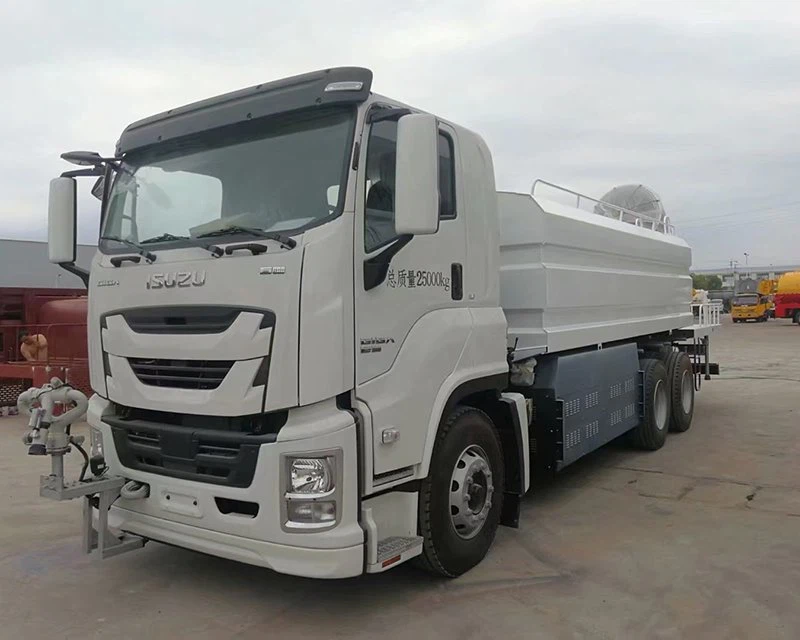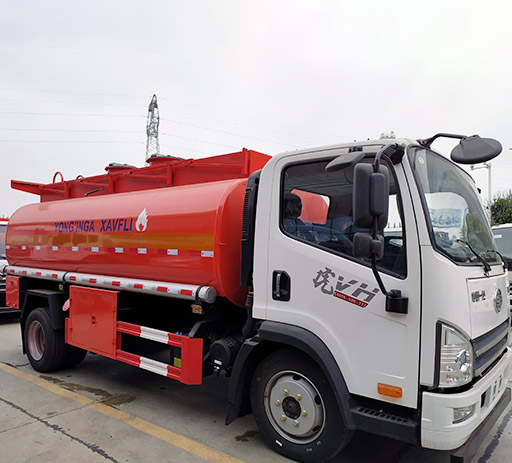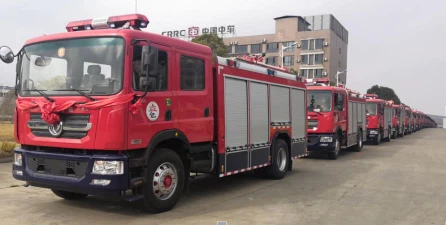Bulk Trucks for Sale: Your Comprehensive Guide

Introduction
When it comes to transporting large quantities of goods, bulk trucks are an essential asset for various industries, including construction, agriculture, and logistics. These specialized vehicles are designed to carry bulk materials such as sand, gravel, and agricultural products. If you are in the market for bulk trucks for sale, this comprehensive guide will navigate through the different types, features, purchasing tips, and provide resources to help you make an informed decision.
Understanding Bulk Trucks
What are Bulk Trucks?
Bulk trucks are heavy-duty vehicles specifically designed for the transportation of loose materials in large quantities. They come equipped with specialized compartments and features that make them ideal for carrying items like soil, grain, or chemicals.
Types of Bulk Trucks
Bulk trucks can be categorized based on their design and functionality. Some common types include:
- Dump Trucks: These trucks have a hydraulic system that allows the bed to be raised, dumping the load at the delivery site.
- Trailer Trucks: These consist of a tractor unit and a trailer that can haul bulk materials over long distances.
- Tankers: Ideal for transporting liquids, these trucks feature specialized tanks and are often used for chemicals or food products.
- Flatbed Trucks: While not specifically designed for bulk, they can be fitted with bins or containers to transport bulk load.
Key Features of Bulk Trucks
Capacity and Size
The capacity of bulk trucks can range widely, impacting their pricing and suitability for various tasks. Common sizes include:
| Type of Truck | Typical Capacity (Cubic Yards) | Usage |
|---|---|---|
| Standard Dump Truck | 10-14 | Construction, Demo |
| Tandem Axle Dump Truck | 14-18 | Heavy Material Transport |
| Tractor Trailer | 20-30 | Long-Distance Freight |
| Cylinder Tanker | 5,000-10,000 gallons | Liquid Transport |
Material Build and Durability
Bulk trucks are built to withstand significant wear and tear. Common materials used in their construction include:
- Steel: Most durable for heavy loads.
- Aluminum: Lightweight and rust-resistant, ideal for fuel efficiency.
- Composite Materials: Increasingly used for their lightweight nature and resistance to corrosion.
Special Features
Depending on the type and model, bulk trucks may come with various special features, such as:
- Automated unloading systems
- Hydraulic lifts
- High-pressure washing systems for cleanliness
- Custom bins or containers for specific materials
Factors to Consider When Purchasing Bulk Trucks
Budget and Financing Options
Setting a budget is crucial when shopping for bulk trucks. Consider not just the initial purchase price but also:
- Maintenance costs
- Insurance expenses
- Fuel economy
Explore financing options such as loans and leases, which can alleviate the upfront cost burden.
New vs. Used Bulk Trucks
Deciding whether to buy new or used trucks can significantly influence your budget. New trucks come with warranties and the latest technology, but are often more expensive. Used trucks are more affordable but require thorough inspections to ensure quality.
Inspection and Testing
If you’re considering a used bulk truck, make sure to conduct a comprehensive inspection. Check for:
- Engine performance and mileage
- Condition of the cargo bed
- Brake systems
- Wiring and electrical systems
Dealer Reputation and After-Sales Service
Whether purchasing from a dealer or a private party, check the reputation of the seller. Reviews and ratings can provide insight into their credibility. Additionally, inquire about after-sales service and warranty options.
Adaptability to Your Business Needs
Your specific business requirements should dictate the type of bulk truck you purchase. Consider:
- The materials you will transport
- Distance and terrain of transport
- Regulatory requirements for moving certain products
Where to Find Bulk Trucks for Sale
Online Marketplaces
Several online marketplaces specialize in heavy vehicles. Some prominent platforms include:
- TruckPaper: Offers a comprehensive list of bulk trucks.
- eBay Motors: A platform for both new and used vehicles.
- Commercial Truck Trader: A dedicated site for commercial vehicles.
Local Dealerships

Sometimes the best deals can be found at local dealerships. Not only can you inspect the truck in person, but you can often negotiate better terms. A visit allows for a thorough test drive and exploration of financing options.
Auctions and Liquidations

Government auctions, bankruptcy sales, and liquidation events can offer top value. These events often feature bulk trucks that can be acquired at significantly discounted prices. Keep an eye on local auction listings and register to attend.
Examples of Bulk Trucks for Sale
Case Study: 2020 Kenworth T370
A 2020 Kenworth T370 dump truck is an excellent example of high-quality bulk trucking. With a capacity of 16 cubic yards, it is suited for construction work. Key features include:
- Durable steel construction
- Automatic transmission for ease of use
- Comprehensive warranty still valid
Case Study: 2018 Peterbilt 579
The 2018 Peterbilt 579 is a popular choice for logistics companies. With a sleeper cab, it offers comfort for long-haul drivers. Its fuel-efficient engine is appealing for ongoing savings.
Maintenance Tips for Bulk Trucks
Regular Inspections
Ensure that your bulk truck undergoes regular inspections to catch potential issues early. Target key components such as:
- Tires and suspension
- Braking systems
- The cargo area
Scheduled Maintenance
Keep a maintenance schedule that includes:
- Oil changes every 5,000-7,500 miles
- Brake inspection every six months
- Fluid checks and replacements as necessary
Driver Training
Proper driver training is crucial for the safe operation of bulk trucks. Ensure that your drivers receive adequate training in handling the vehicle and materials.
Frequently Asked Questions (FAQs)
What is the average cost of bulk trucks for sale?
The cost of bulk trucks varies widely based on type, age, and condition. You can find used trucks starting from around $15,000, while new models can exceed $100,000.

Are bulk trucks safe to operate?
Yes, bulk trucks are designed with safety features such as anti-lock braking systems and stability control. However, safety also greatly relies on proper use and maintenance.
Can I finance a bulk truck purchase?
Yes, many dealerships and banks offer financing options for bulk truck purchases, including loans and leases to make ownership more affordable.
What should I inspect before buying a used bulk truck?
Before buying, ensure you inspect the engine, brakes, tires, and the integrity of the cargo area. It’s advisable to have a trusted mechanic conduct a thorough inspection.
How much weight can bulk trucks carry?
The carrying capacity of bulk trucks varies by model. Most can handle between 10,000 to 40,000 pounds depending on their design.
Is it better to buy new or used bulk trucks?
Buying new offers the latest technology and warranties, while used trucks are more affordable. The best choice depends on your budget and needs.
